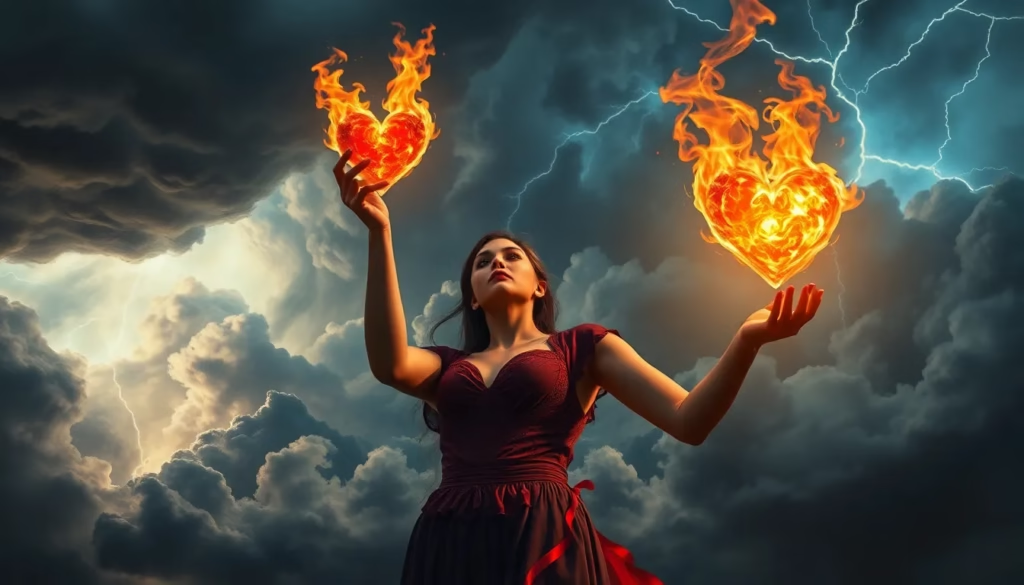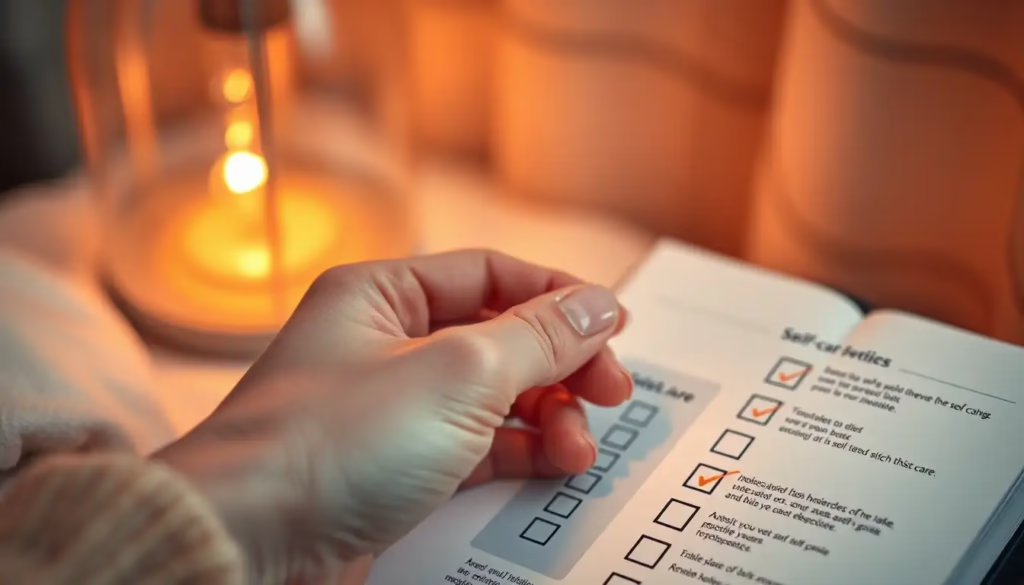When a relationship is both very good and very bad, It produces soul-crushing lows, tremendous highs, and emotional bewilderment. You feel adored but severely wounded, safe but nervous, and loved but exhausted. You’re not alone if this speaks to you, and this essay is for you.
We’ll examine real-world case studies, compare relationship patterns, exchange expert ideas, delve into the psychological underpinnings of ambivalent relationships, and provide a useful checklist. You’ll know by the end if your love story is genuinely uplifting you or subtly undermining your soul.
Understanding the Ambivalence: Love or Emotional Chaos?
🌪️ What Does It Mean When a Relationship Is Both Very Good and Very Bad?
Ambivalent relationships are those where intense affection coexists with deep emotional wounds. You’re constantly swinging between “This is the one” and “I can’t do this anymore.”
Real-Life Example:
Jenna, 31, a teacher from New York, says:
“My boyfriend makes me feel beautiful and seen… but he also makes me cry almost every week. I don’t know how something that feels so right can hurt this much.”
Why Does This Happen? 5 Psychological Reasons

1. Insecure Attachment Styles
People with anxious or avoidant attachment may feel both desperate for closeness and terrified of abandonment, creating constant emotional push and pull.
Expert Insight: Dr. Amir Levine, co-author of Attached, explains that anxious types often interpret mixed signals as validation and crave chaotic love as “passion.”
2. Romantic Idealism
We’re taught to believe love must be fiery, dramatic, and all-consuming. That narrative makes us stay even when we’re suffering.
3. Power Imbalance
One partner may dominate emotionally, causing the other to feel unstable and insecure, even if affection is present.
4. Trauma Bonds
Repeated cycles of affection followed by pain create a neurochemical dependency—much like addiction.
5. Fear of Being Alone
Loneliness can feel worse than toxicity. So we settle for temporary highs and emotional exhaustion.
Signs You’re in an Ambivalent Relationship
-
-
Frequent emotional whiplash
-
Feeling “crazy” or unstable
-
Constantly questioning the relationship
-
Rare but powerful highs (e.g., “They cried and apologized”)
-
Friends are concerned for your well-being
-
Case Study: Two Sides of the Same Coin

Liam (35) & Priya (32), Canada
They’ve been together for 6 years.
Liam describes their bond as “fiery and passionate.” Priya says it’s “exhausting and heartbreaking.”
They broke up 4 times in 2 years. Every reunion brought euphoric closeness. Every fight left deeper scars.
After therapy, Priya realized she was trauma-bonded. She left. Liam is in recovery for emotional dysregulation.
Comparison Table: Healthy vs Ambivalent Relationship
| Aspect | Healthy Relationship | Ambivalent Relationship |
|---|---|---|
| Emotional Consistency | Mostly stable and respectful | High highs, low lows |
| Conflict Resolution | Calm, solution-oriented | Explosive or avoidant |
| Attachment Feelings | Secure, trusting | Anxious, fearful, obsessive |
| Impact on Mental Health | Uplifting | Draining, confusing |
| Growth Opportunities | Encouraged mutually | Often blocked by conflict or insecurity |
Checklist: Are You in an Emotionally Confusing Relationship?

✅ I often feel loved and unloved by the same person
✅ I’m constantly questioning the relationship
✅ Emotional intensity outweighs emotional safety
✅ I stay for the rare moments of sweetness
✅ My gut says something is off—but I can’t let go
✅ Friends or family have expressed concern
If you ticked 4 or more, it’s time to reflect deeply.
What Experts Say About It
-
Dr. Francesca Righetti, relationship scientist, argues that ambivalence can be more damaging than consistent negativity because unpredictability creates chronic stress and erodes emotional safety.
-
A 2023 study from Stanford University found that individuals in high-ambivalence relationships reported higher cortisol levels and lower overall life satisfaction compared to those in consistently bad relationships.
-
According to Psychotherapist Nedra Glover Tawwab, love without boundaries often becomes a breeding ground for resentment.
“When someone keeps hurting you and then loves you extra hard, it’s not romance. It’s chaos.”
Advice for Moving Forward
🔄 Step 1: Identify the Patterns
Track your emotions weekly. Are you riding an emotional rollercoaster more often than not?
💬 Step 2: Communicate, Then Observe
Express your feelings with clarity. How your partner responds reveals a lot.
🧠 Step 3: Seek Therapy
A good therapist can help you decode your attachment style and identify trauma loops.
🧭 Step 4: Choose Peace Over Passion
High chemistry doesn’t always mean long-term compatibility. Emotional safety is underrated—but essential.
1. Problem
You’re in a relationship that gives you butterflies and breakdowns. You feel cherished and crushed—often on the same day. You’re stuck in a confusing emotional tug-of-war.
2. Agitation
You ask yourself: “Am I too sensitive?” or “Is this love or dysfunction?” Friends don’t understand why you stay. You dread both staying and leaving. Your self-worth is quietly bleeding out.
3. Solution
Clarity begins with awareness. Use expert insight, evidence-based research, and personal reflection to decide: Is this love lifting me or breaking me? Choose growth. Choose peace.
10 FAQ’s : When A Relationship is Both Very Good And Very Bad?
Q1. What does it mean when a relationship is both very good and very bad?
It means the relationship swings between deep affection and emotional pain, creating instability and confusion.
Q2. Is it normal to feel both happy and miserable in a relationship?
Some ups and downs are normal, but constant emotional conflict is not healthy.
Q3. Why can’t I leave if I know it’s hurting me?
Trauma bonds, fear of loneliness, or anxious attachment may be keeping you stuck.
Q4. Is intense passion always a good sign?
No. It can mask emotional instability or unhealthy dependency.
Q5. Can therapy help with ambivalent relationships?
Absolutely. Individual and couple’s therapy can help identify patterns and promote clarity.
Q6. What’s worse: indifference or ambivalence?
Ambivalence is more harmful long-term, as it keeps you emotionally hooked through hope and pain.
Q7. Is it love if they hurt me often but apologize afterward?
Frequent hurt, even with apologies, signals dysfunction—not healthy love.
Q8. Can an ambivalent relationship become healthy?
With self-awareness, mutual effort, and professional help, it’s possible—but not guaranteed.
Q9. How do I know if it’s time to walk away?
When pain outweighs joy, and change remains a promise not action, it’s time to consider leaving.
Q10. What if I still love them?
Love isn’t always enough. Emotional safety, respect, and growth are essential too.

Final Thoughts & Call to Action
When a relationship is both very good and very bad, it slowly chips away at your peace, confidence, and clarity. You deserve a love that heals, not one that haunts you.
🌟 Take a deep breath. Reflect. Seek support. You don’t have to stay trapped in emotional confusion. You deserve better—and it’s okay to choose that.
📩 If this touched you, share it with someone who might be quietly struggling. Start a conversation. Choose clarity.
Special Advice for Readers
If you’re stuck in such a relationship, don’t only ask, “Do they love me?” Ask instead, “Is this love nurturing me or hurting me?”
Emotional rollercoasters feel like love, but love—real love—is steady, secure, and safe.
Useful Articles :-
- Signs of Love Bombing: 7 Red Flags to Spot Manipulative Affection Early
- What Is a Situationship? 7 Unfiltered Truths About Modern Love
- 10 Signs of a Healthy Relationship: What To Look For
- Communication Skills for Couples: 7 Transformative Tips to Strengthen Your Connection
- 7 Powerful Ways to Build Healthy Relationship Boundaries for Lasting Love
- 9 Empowering Steps for Recovering from a Breakup: Heal, Grow, and Thrive
- 7 Powerful Long-Distance Relationship Advice : Tips to Keep the Spark Alive
- Jealousy in Relationships: 7 Powerful Ways to Manage the Green-Eyed Monster
- 5 Insights Into Love Languages in Relationships : Do They Really Work?
- What Does Emotional Safety In Relationships? 7 Biblical Keys to Building Trust and Intimacy